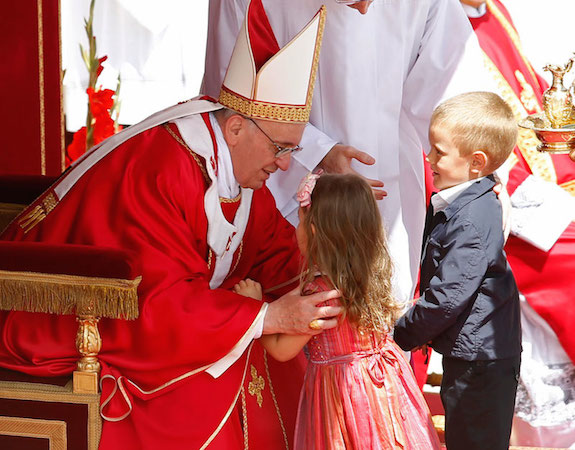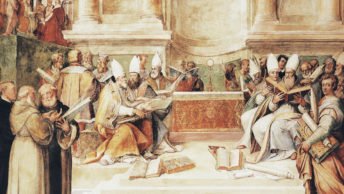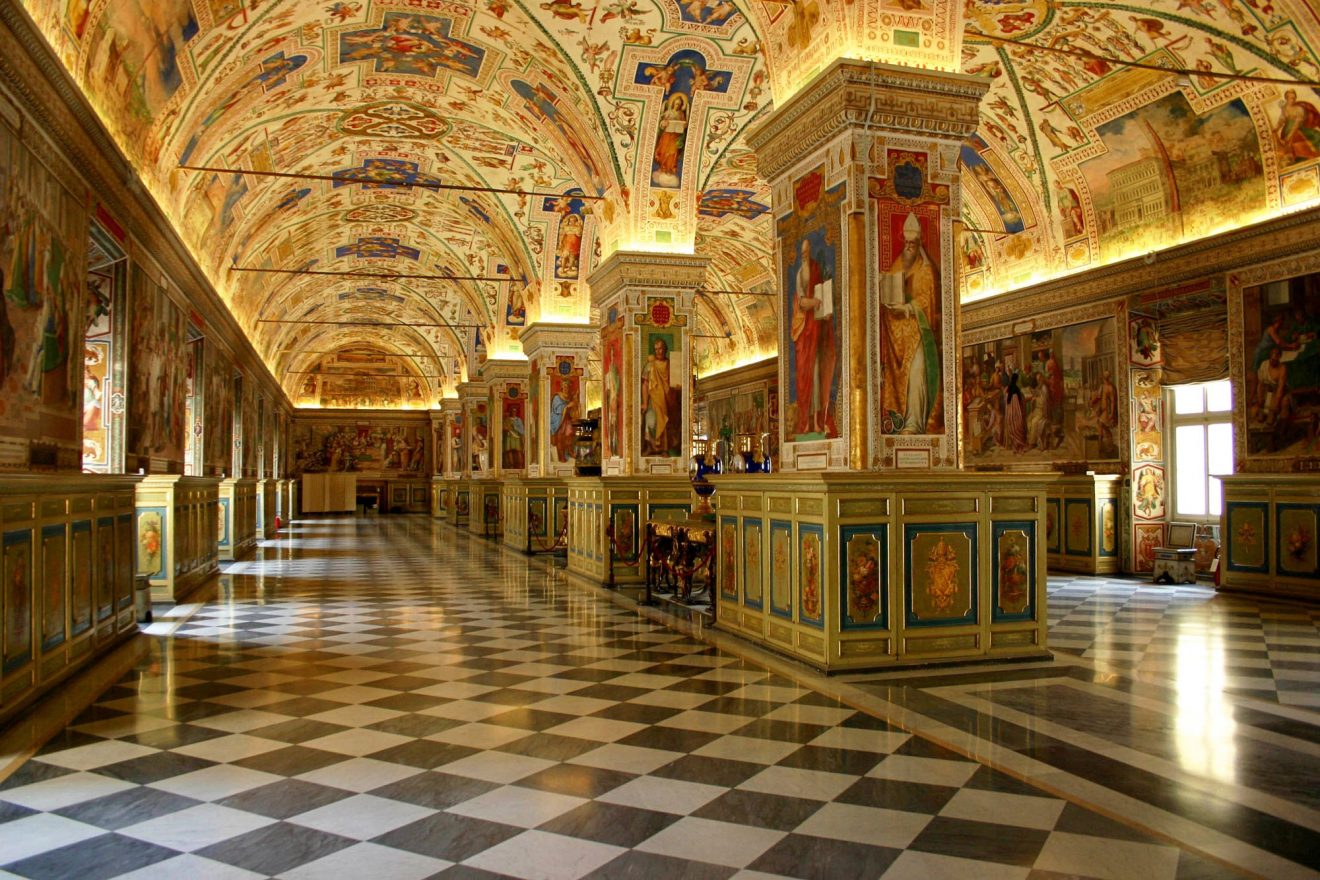
In his homily of January 30, 2014, Pope Francis reminded us that “the first fruit of our Baptism is to make us a part of the Church, a member of the people of God.” In recalling the words of Pope Paul VI, he noted the absurdity “to claim that we love Christ without the Church, that we listen to Christ but not the Church, that we are with Christ but on the margins of the Church. The Gospel message comes to us through the Church and our path to holiness must be found within the Church.” Furthermore, our sense of belonging to the Church rests on three pillars: (1) humility; (2) faithfulness; and (3) prayer. With regard to the first, “a person who is not humble cannot feel with the Church but only feels what he or she desires.” Second, our faithfulness must be viewed as a gift to others that we pass on to others—in faithfulness. It is not something that belongs to us. Third, the pope asked: “Do we really pray for the Church?”
For me, a pillar is a powerful image for describing our Christian vocation. According to one online dictionary, “a pillar is an upright shaft or structure, of stone or brick, used as a building support.” While pondering this image and definition, let us travel to the region of Caesarea Philippi (Mt 16:13-19) and find Jesus and His disciples standing near a soaring stone foundation. Our Lord asks them: “Who do men say that the Son of man is?” Eventually, we hear Peter’s voice: “You are the Christ, the Son of the living God.” After his recognition of Jesus’ divinity, our Lord proceeds to inform Peter of his own identity. “And I tell you, you are Peter, and on this rock I will build my church, and the powers of death shall not prevail against it. I will give you the keys of the kingdom of heaven, and whatever you bind on earth shall be bound in heaven, and whatever you loose on earth shall be loosed in heaven.”
But today, some say that this cannot be true. In pointing to recent [and past] scandals, they note that the bishops have let us down and cackle: “With sinners in charge, Jesus’ words cannot be true.” To this regard, Venerable Father Solanus Casey once noted that “God could have founded the Church and left it under the supervision of angels that have no human faults and weaknesses. But who can doubt that as it stands today, consisting of and under poor sinners- successors of ignorant fishermen- that the Church is a more outstanding miracle than any other way.”
In returning to the three pillars (humility, faithfulness, and prayer) St. Thomas Aquinas wrote of the first: “The virtue of humility consists in keeping oneself within one’s own bounds, not reaching out to things above one, but submitting to one’s superior” (Summa Contra Gent., bk. IV, ch. lv, tr. Rickaby). Pope John Paul I, in a General Audience (September 6, 1978), went so far as to say: “The Lord so loves humility that at times he allows grave sins. Why? That those who have committed them, these sins, after repenting, be humbled. We would never believe we are half a saint, half an angel, when we know we are guilty of grievous sins. The Lord so urged us to be humble. Even if you have done great things, say: We are useless servants.” Regarding faithfulness, the events and actions leading to Calvary certainly provide us a unique window to measure our own relationship with Jesus. Are we His faithful friends who will remain with Him to the Cross? Or, will we abandon Him and flee His presence when times turn gray? Lastly, with regard to prayer, do we—pray? As Saint Josemaría Escrivá de Balaguer once said: “You don’t know how to pray? Put yourself in the presence of God, and as soon as you have said, ‘Lord, I don’t know how to pray!’ you can be sure you have already begun.”
With Holy Week upon us, may we humbly join ourselves to His Church and walk faithfully and prayerfully down the road which leads to life.
A worthy path.







